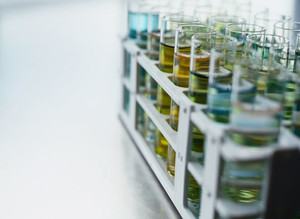Safety is a major concern when it comes to biologicals (including biosimilars) and the most critical safety concern is immunogenicity. This is especially important in monoclonal antibody (mAb) biologicals, which are large molecules with complex structures and functions and which represent the largest class of biologicals [1].
Assessing the immunogenicity of monoclonal antibodies
Biosimilars/Research
|
Posted 04/12/2015
 0
Post your comment
0
Post your comment

Immunogenicity is the ability to induce a humoral and/or cell mediated immune response. Given that biologicals may induce such unwanted immune responses it is essential to investigate the immunogenicity of a biological prior to marketing approval. The immune response, however, is influenced by many factors and data generated in pre-licensure studies may prove difficult to assess for regulators.
At the World Health Organization (WHO) implementation workshop on Evaluation of Biotherapeutic Products, held in Seoul, Republic of Korea, in May 2014, regulators and manufacturers participated in a workshop evaluating two case studies mimicking a real situation evaluating immunogenicity studies in two fictitious mAb products [2].
It was expected that after completing the workshop, participants would have an understanding of how studies are conducted and assessed. In addition, how the information obtained is used to make decisions relating to the appropriateness of the studies and how the observed immunogenicity impacts on the clinical use of the mAbs were also covered.
Suitability of the assays for immunogenicity assessment was highlighted as a topic of critical importance for conducting the case studies. The value of reviewing raw data for each individual subject in order to assess the impact of immunogenicity on efficacy and safety was also clearly demonstrated in the case studies.
WHO guidelines [3] state that the monitoring period for immunogenicity assessment depends on the intended duration of treatment and the expected time of antibody development. However, one of the examples in the case studies illustrated that a longer period of observation may be necessary to increase accuracy in assessing immunogenicity.
The case studies also highlighted the need to assess the methods used for appropriateness for use for their intended purpose and to interpret the data generated, taking into account their limitations.
Conflict of interest
The authors of the research paper [1] declared that there were no conflicts of interest.
Editor’s comment
This article for GaBI Online is a summary of the full article published in GaBI Journal.
If you would like to receive a copy of the GaBI Journal article, please send us an email.
Readers interested to learn more about immunogenicity of biosimilar monoclonal antibodies are invited to visit www.gabi-journal.net to view the following manuscript published in GaBI Journal:
Immunogenicity of biosimilar monoclonal antibodies
Readers interested in contributing a research or perspective paper to GaBI Journal – an independent, peer reviewed academic journal – please send us your submission here.
Related articles
Protein aggregation and the generation of immune responses
Immunogenicity testing in biosimilars
References
1. Derbyshire M. Immunogenicity assessment of monoclonal antibodies. Generics and Biosimilars Initiative Journal (GaBI Journal). 2015;4(4):185-6. doi:10.5639/gabij.2015.0403.043
2. Knezevic I, Kang HN, Thorpe R. Immunogenicity assessment of monoclonal antibody products: A simulated case study correlating antibody induction with clinical outcomes. Biologicals 2015;43(5):307-17.
3. Guidelines on the quality, safety and efficacy of biotherapeutic protein products prepared by recombinant DNA technology. Annex 4. In: WHO expert committee on biological standardization. Sixty-fourth report. Geneva: World Health Organization; 2014 (WHO Technical Report Series, No. 987). [cited 2015 Dec 4]. Available from: www.apps.who.int/iris/bitstream/10665/129494/1/TRS_987_eng.pdf?ua¼1&ua¼1
Permission granted to reproduce for personal and non-commercial use only. All other reproduction, copy or reprinting of all or part of any ‘Content’ found on this website is strictly prohibited without the prior consent of the publisher. Contact the publisher to obtain permission before redistributing.
Copyright – Unless otherwise stated all contents of this website are © 2015 Pro Pharma Communications International. All Rights Reserved.
News
FDA approves Poherdy (first interchangeable pertuzumab) and Armlupeg (pegfilgrastim) biosimilars
EMA recommends approval for insulin glargine biosimilar Ondibta and denosumab biosimilar Osqay
General
Samsung Bioepis wins Pyzchiva case; Regeneron patent rulings threaten foreign biosimilars
Chinese biosimilars go global: growth, partnerships, and challenges
What is the future for the US biosimilar interchangeability designation

Biosimilars/Research Posted 05/06/2025
Biosimilar clinical efficacy studies: are they still necessary?

Biosimilars/Research Posted 27/05/2025
The best selling biotechnology drugs of 2008: the next biosimilars targets








Post your comment